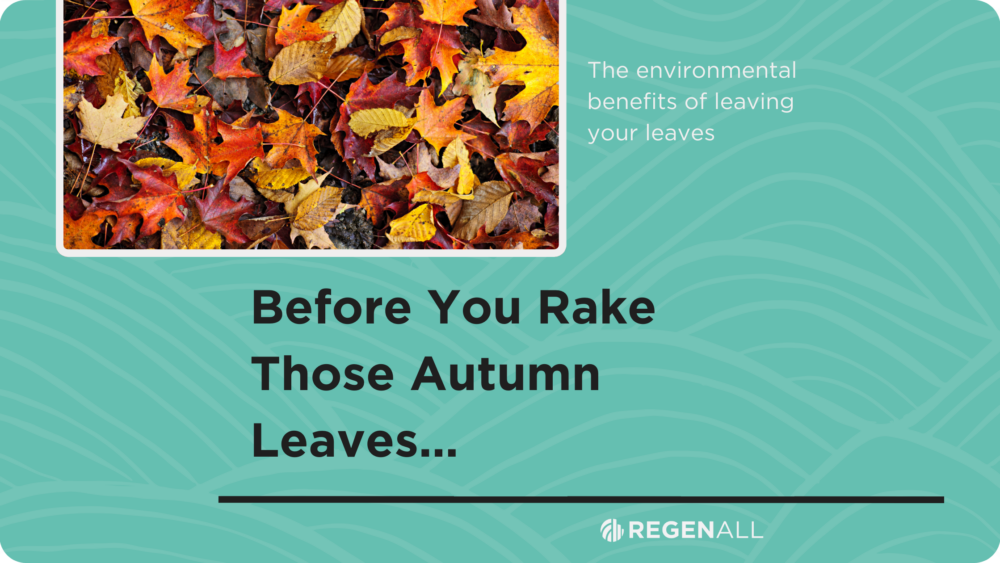It’s that time of the year again: As the temperature cools, the green summer leaves of deciduous trees begin to change color and fall. The vibrant reds, oranges, and yellows that can be seen are one of the highlights of autumn, as iconic of the season as corn mazes and jack o’ lanterns.
For those of us with yards to maintain, however, those leaves, once fallen, can get kind of annoying. The constant mowing of the summer months gives way to the constant raking of the fall, and it’s hard to be satisfied with a job well done when we’re finally starting to reckon with the ecological impact of yard maintenance. Turns out that all that emphasis on green turf really isn’t that good for the environment. Still, what’s the alternative? Not rake?
Well, maybe. After all, nobody rakes the forests. And that leaf litter, when left on the ground, offers benefits that it just cannot provide in a landfill. Decaying leaves are rich in nitrogen, a key ingredient in plant fertilizer. The leaves are broken down by soil microbes and animals such as earthworms, the latter of which also play a valuable role as food for animals up the food web, such as birds. Leaf litter also provides a hiding spot for hibernating insects or their eggs and larvae, and it insulates the soil from wind and cold.
So great news for haters of raking: leaving those leaves on the ground for the winter is a negative-effort way to benefit your local biome! Of course, there are complications. Namely, if you belong to an HOA, or if your neighborhood is under township or borough-imposed yard maintenance requirements, you may not be able to entirely skip raking this fall. To avoid any passive-aggressive letters, or worse, fines, make sure that you check your local regulations to see what you are, and are not, required to do. If such rules apply to you, you might try reaching out to the governing body responsible to make the argument for a change of scene. Unfortunately, outmoded lawn-maintenance norms are still very widespread and often enforced, but with time and pressure, norms do change.
In the meantime, if you must rake, you can still manage your yard waste in an environmentally friendly way. Leaves can be composted in a backyard bin or in a municipal or cooperative program such as the Lancaster Composting Coop. If only certain areas of your property must be leaf-free, you could choose to rake only those areas. Leaves could also be moved to cover dormant gardens or areas under tree canopies, where a lawn is less likely to grow.
There are many ways to deal with the leaves that fall on your lawn, and the specifics of your property will determine what practices are best for you. What’s important though, is that we move away from treating autumn leaves like garbage, and towards seeing them as a natural resource that should be managed thoughtfully. And, if we can save some time raking, that’s a bonus.



Comments are closed.